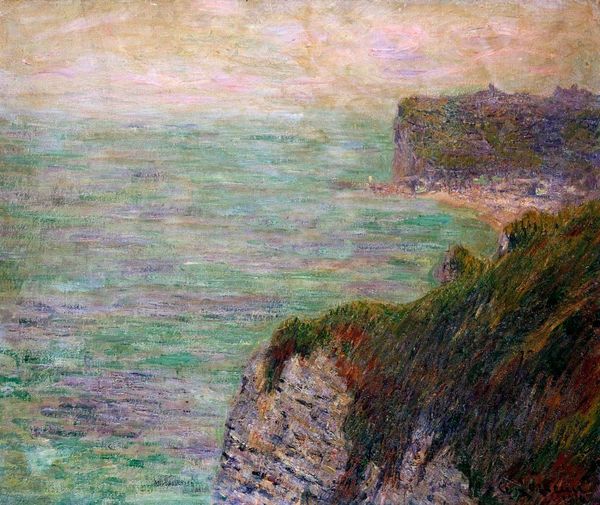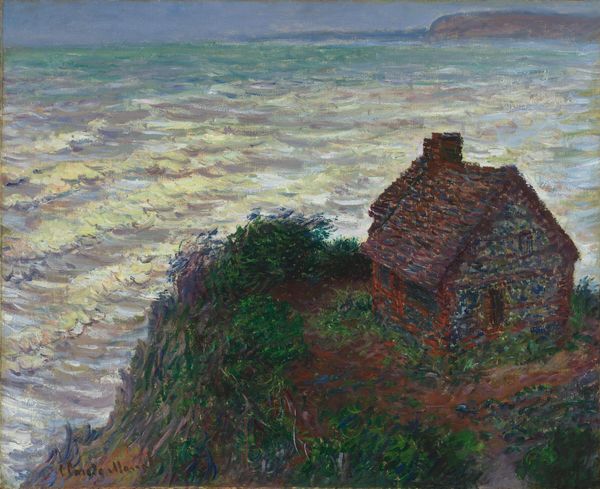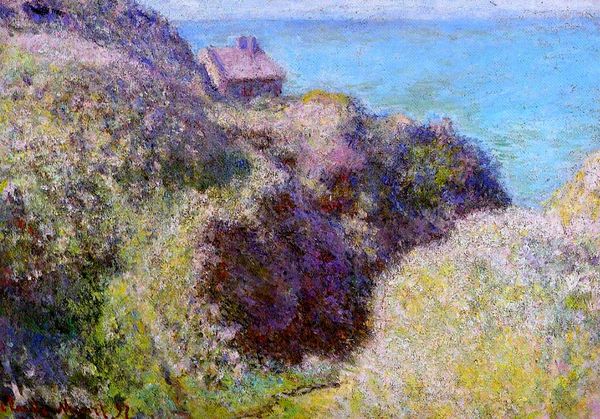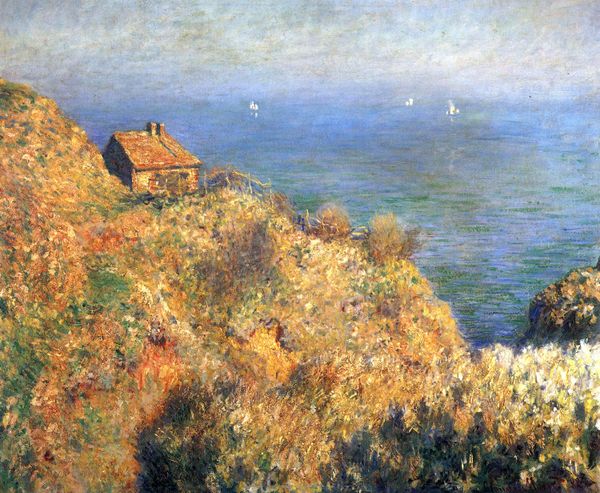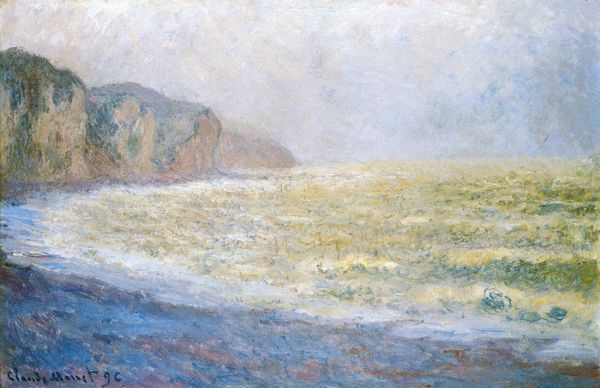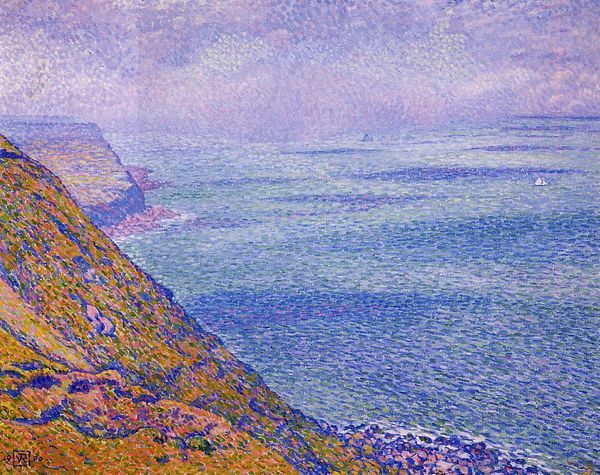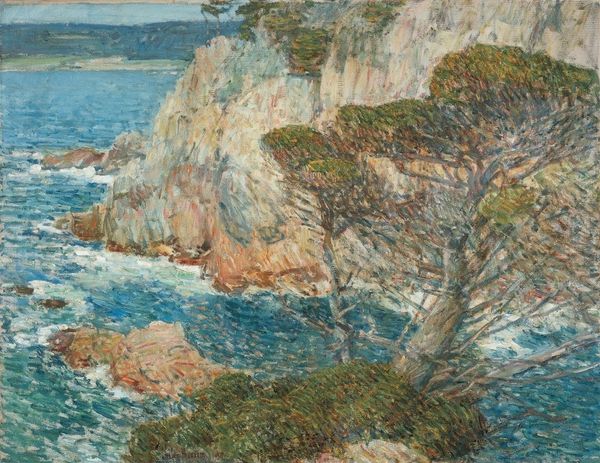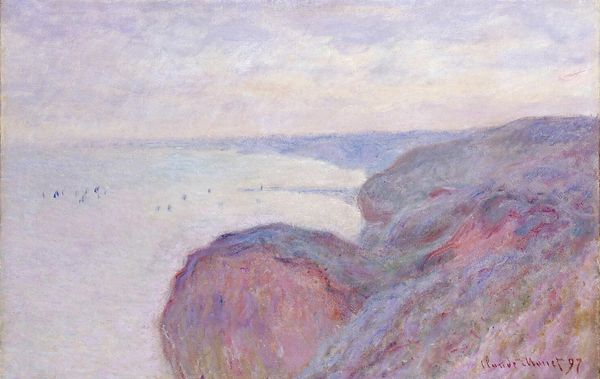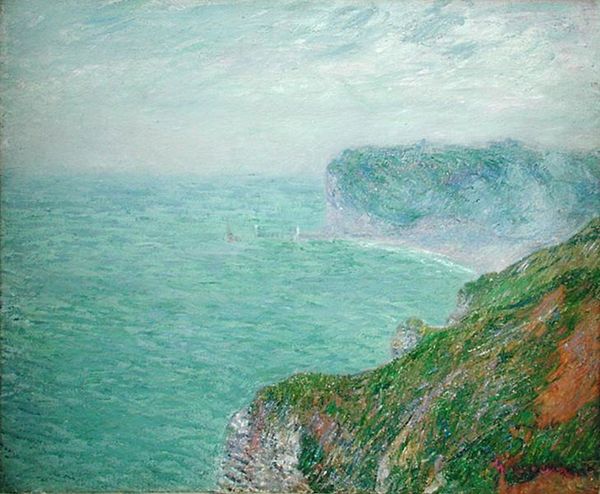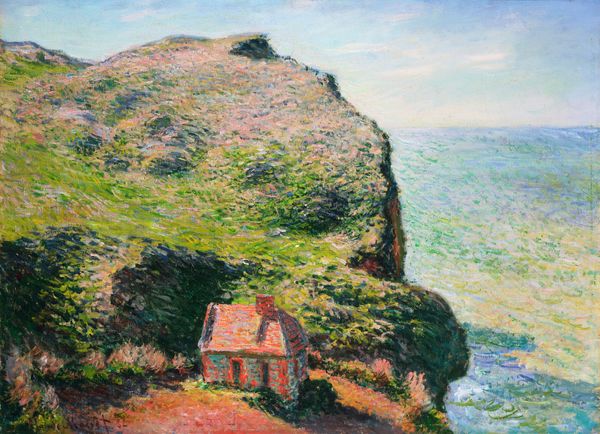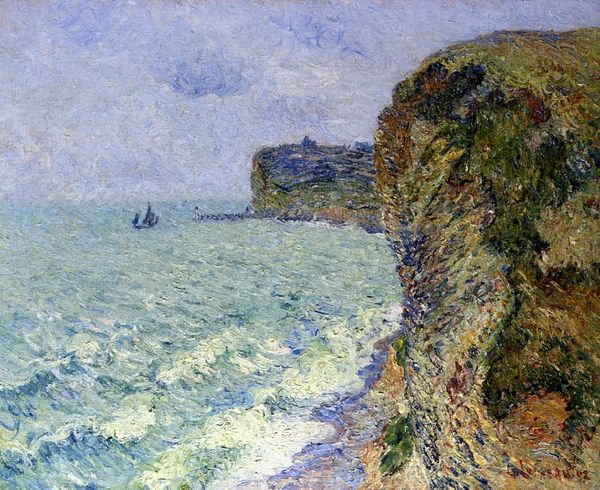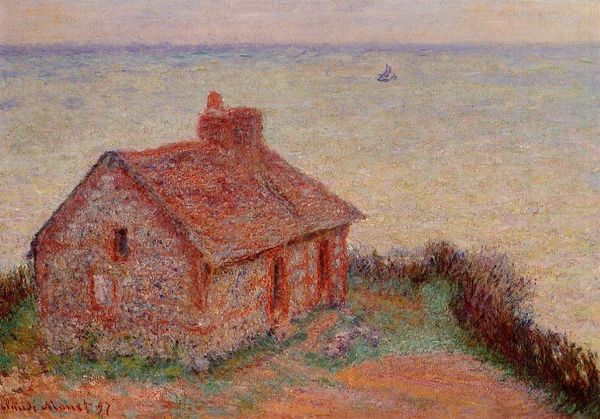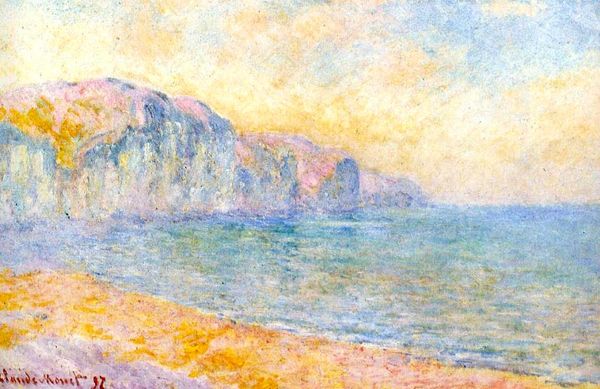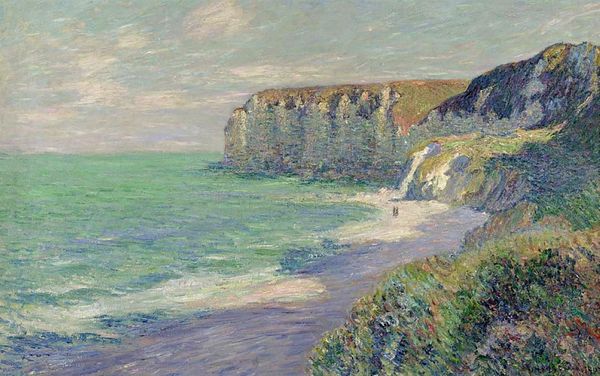
painting, plein-air, oil-paint
#
cliff
#
painting
#
impressionism
#
plein-air
#
oil-paint
#
landscape
#
impressionist landscape
#
oil painting
#
seascape
#
sea
Copyright: Public domain
Claude Monet captured ‘Fisherman's House in Petit-Ailly’ with oil on canvas, presenting a scene dominated by the textures of the sea and the solidity of the land. Notice how Monet uses a rich impasto to render the waves, creating a dynamic, almost palpable surface that contrasts with the more grounded texture of the cliffside. Monet's brushwork here is crucial; each stroke functions as a sign, contributing to a semiotic system that communicates the essence of the landscape. The blurred horizon challenges fixed perspectives, engaging with contemporary debates about perception and reality. How does Monet's technique reflect a broader artistic concern with destabilizing traditional modes of representation? Consider the overall composition. The house sits on the periphery, a structural element that enhances the painting's spatial ambiguity. This placement forces us to question the centre and margin, the stable and the transient. It demonstrates how formal qualities contribute to a deeper philosophical discourse about our place in the world and the ways we perceive and interact with our environment.
